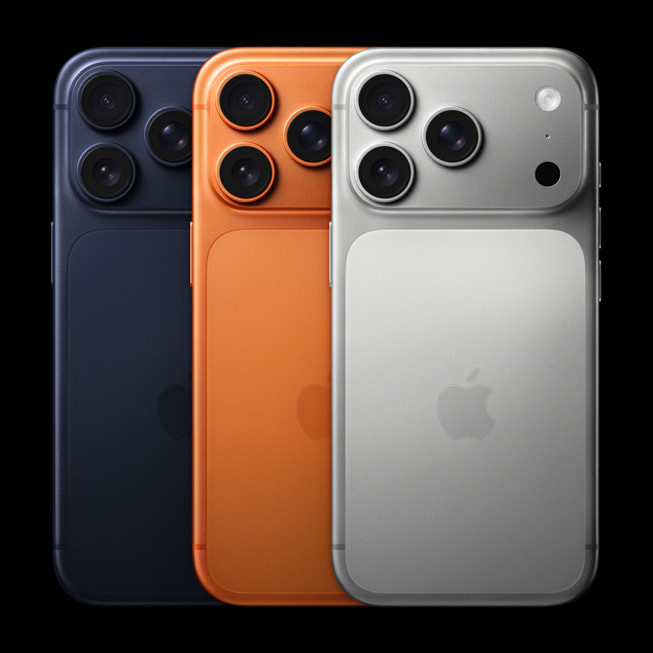Apple on Tuesday introduced its iPhone 17 lineup, including new Pro and Pro Max models, alongside a slimmer iPhone Air designed to showcase a high-density battery and sleeker profile. The announcement at the company's Cupertino headquarters comes as Apple faces intensifying global competition and higher costs tied to U.S. tariffs.
The iPhone 17 Pro and Pro Max mark Apple's most advanced flagship devices yet, featuring the company's largest-ever iPhone battery and a striking redesign of the rear camera system. The "full-width camera plateau" stretches across the back of the phone, a design reminiscent of Google's Pixel lineup. Both models now carry three 48-megapixel sensors, a major upgrade from last year's telephoto lens. The telephoto camera boasts a 56% larger sensor and delivers up to 8x optical-quality zoom.
The front-facing camera also receives a significant boost with a new 18-megapixel sensor incorporating Center Stage technology for dynamic framing. The Pro models, powered by Apple's new A19 Pro chip, come in silver, blue, and orange, with Ceramic Shield glass on both front and back. Prices start at $1,099 for the Pro and $1,199 for the Pro Max, both beginning at 256GB of storage, with the Pro Max offering up to 2TB. Preorders open Friday, with general availability on September 19.
Apple also debuted the iPhone Air, a thinner handset positioned as the company's "most durable iPhone yet." Analysts see the model as a potential bridge toward a foldable device, which could help Apple regain market share in China, where Samsung's Galaxy foldables have been popular. The Air is powered by the new A19 chip, built with 3-nanometer technology for improved AI performance.
The standard iPhone 17 introduces a brighter, scratch-resistant display and an improved front-facing camera with a redesigned sensor to enhance horizontal selfies. Apple emphasized its on-device AI features, though significant Siri upgrades remain delayed until 2026.
Alongside the new phones, Apple rolled out the AirPods Pro 3 with live language translation for real-time bilingual conversations and priced them at $249, available September 19. The company also highlighted its upcoming blood pressure monitoring feature in the Apple Watch Series 11, which awaits regulatory approval but could notify more than 1 million users of potential hypertension in its first year.
The iPhone 17 series arrives a year after criticism of Apple's early AI strategy, with last year's "Apple Intelligence" rollout failing to meet expectations. The company has since partnered with OpenAI, and industry watchers expect further AI alliances before a revamped Siri arrives.






